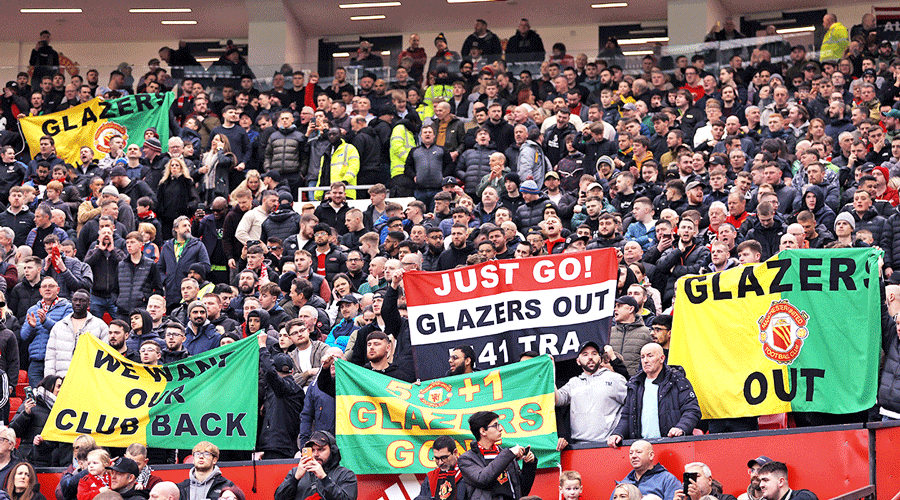The World Cup in Qatar was in its third day when Manchester United’s press office announced that its American owners were exploring an end game they had long refused to even consider: a potential sale of the famed English football club.
Every day since that November morning, the swirl of speculation about who might buy United, one of the world’s most popular and most valuable sports teams, has gathered pace.
A British billionaire quickly confirmed that he planned to bid. An American hedge fund kicked the tires. Reports of a Saudi Arabian offer sent the club’s stock price surging. But it was from Qatar, rumoured for weeks to have investors interested in adding United to the country’s expanding sports portfolio, where details of the first official bid appeared.
The official word of concrete Qatari interest arrived in a statement on Friday night: an all-cash offer — reportedly worth as much as $6 billion — by Sheikh Jassim bin Hamad al-Thani, a little-known royal whose power may lie more in his post as the chairman of a major Qatari bank and in the influence of his father, a former prime minister who helped put their small nation on the international map.
Pledging to invest in United’s stadium and its teams without adding a dollar to its debts, his five-paragraph statement read like a box-ticking exercise in proposals designed to win the support of anyone eager to see the back of the Glazers, the family that has controlled the Premier League giant for nearly two decades.
His public pitch took other bidders by surprise. The Qatari offer led another bidder, Jim Ratcliffe, a British petrochemical billionaire based in Monte Carlo, to first privately and then publicly confirm that he had made an offer for 69 per cent of United, the amount of the club owned by the Glazers. Ratcliffe pointedly offered United fans an English alternative to the prospect of Gulf ownership.
Ratcliffe and Sheikh Jassim may soon face other challenges, too. Other bids may already exist, and new (and possibly higher) ones can still be presented.
The Glazers family acquired United in a highly contentious deal in 2005 in which it leveraged the majority of the purchase price against the club, meaning United has spent hundreds of millions of dollars paying for the right to be owned by the family.
That deal has been hugely profitable for the Glazers. Through fees and dividend payments, the family has secured a return far higher than its initial direct investment (a fraction of the roughly $1.4 billion purchase price at the time). The club’s value has skyrocketed, with media reports suggesting the family is now seeking as much as $7 billion to part with it.
In Raine, United’s owners have entrusted the job of soliciting offers to a bank with a recent track record of finding buyers willing to pay above-market prices. The firm, led by the New York banker Joe Ravitch, secured £2.5 billion (about $3 billion) last year in the sale for Chelsea. But that was more of a forced sale, one sparked by British government sanctions against Chelsea’s Russian owner, Roman Abramovich, shortly after Russia’s invasion of Ukraine.
The Glazers do not face similar pressure. That means whatever the billionaires offer, whatever they promise, Manchester United will be sold only at a price the Glazers are willing to accept.
New York Times News Service











